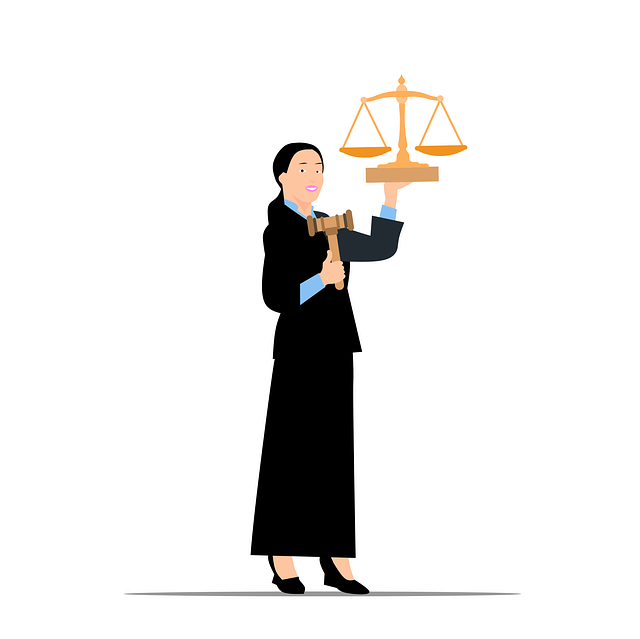Antitrust violation cases are vital for maintaining fair competition in employment markets, addressing practices like price-fixing and monopolization that harm workers' opportunities. Anyone considering filing an employment law complaint should consult a legal professional for guidance on gathering evidence, documenting violations, and exploring resolution options. The process involves researching laws, identifying violations, and documenting losses, with both corporate and individual clients participating in investigative and enforcement stages. Following submission of the Steps to File an Employment Law Complaint, authorities conduct a merit review and may initiate a formal investigation where both sides present their cases, ultimately aiming for justice.
“Antitrust violation cases play a pivotal role in employment law, ensuring fair practices and competition in the workplace. This comprehensive guide delves into the intricacies of such cases, starting with defining and understanding them. We explore who can file a complaint, outlining criteria for eligible parties.
The article then navigates the process of filing a legal complaint, providing clear steps to ensure a thorough submission. Furthermore, it illuminates post-filing procedures, offering insights into what happens after taking these critical Steps to File an Employment Law Complaint.”
- Understanding Antitrust Violation Cases: Definitions and Relevance in Employment Law
- Who Can File an Antitrust Complaint: Criteria and Eligible Parties
- The Process of Filing a Legal Complaint: Steps to Take
- Post-Filing Procedures: What Happens After Submitting Your Employment Law Complaint?
Understanding Antitrust Violation Cases: Definitions and Relevance in Employment Law

Antitrust violation cases are legal battles aimed at preserving fair competition within markets. In the context of employment law, these cases become crucial when employees or prospective employees believe their rights have been infringed upon by employers who engage in anti-competitive practices. Such practices might include price-fixing, market division, or the suppression of competition through aggressive monopolistic behavior. These violations can significantly impact workers’ opportunities and compensation.
Understanding these cases is essential for anyone considering steps to file an employment law complaint. If you suspect your employer has engaged in anti-competitive conduct, it’s important to familiarize yourself with the relevant laws and regulations. The first step is often reaching out to a legal professional who can guide you through the process, ensuring your rights as both an employee and a consumer are protected. This may involve gathering evidence, documenting instances of suspected violations, and exploring options for resolution, whether through negotiation or litigation. Remember, whether dealing with a general criminal defense, corporate, or individual client scenario, knowledge of antitrust laws can empower you to take action against unfair practices in the workplace.
Who Can File an Antitrust Complaint: Criteria and Eligible Parties

Anyone can be a party to an antitrust lawsuit, but there are specific criteria for who can file a complaint. Typically, individuals or businesses that have suffered an antitrust injury due to alleged violations of competition laws can bring a claim. This includes harm caused by anti-competitive practices such as price fixing, market division, or monopolization. When it comes to employment law, employees who believe their rights have been violated by employers engaging in anticompetitive conduct may file a complaint.
The process involves understanding the relevant legal provisions and gathering evidence to support the claim. The steps to file an employment law complaint typically include researching the applicable laws, identifying potential violations, and documenting any losses or damages incurred. Both corporate and individual clients can be eligible to participate in all stages of the investigative and enforcement process, aiming to secure justice and potentially winning challenging defense verdicts.
The Process of Filing a Legal Complaint: Steps to Take

When considering steps to file an employment law complaint regarding antitrust violations, it’s crucial to understand the process is meticulous and requires careful navigation. The first step involves gathering comprehensive evidence of the alleged violation(s). This includes documents, communications, contracts, or any records that highlight anti-competitive practices within the workplace. Engaging with a reputable employment law attorney who specialises in antitrust litigation can provide invaluable guidance on amassing compelling evidence.
Once armed with sufficient proof, the next step is to file a formal legal complaint. This typically involves submitting detailed allegations to the appropriate regulatory body or court, outlining the specific antitrust violations and their impact. A well-crafted complaint should include relevant facts, dates, and descriptions of the harmful actions. In cases involving white collar and economic crimes, including general criminal defense strategies may also come into play. However, the primary focus remains on demonstrating how these practices negatively affect competition or employees’ rights within the employment setting.
Post-Filing Procedures: What Happens After Submitting Your Employment Law Complaint?

After submitting your employment law complaint, a series of post-filing procedures kick into gear. The first step involves an initial review by the relevant antitrust authority or agency to assess if your case warrants further investigation. This evaluation considers the merit of your claim, the potential impact on competition, and whether there’s sufficient evidence to proceed. If the initial review is positive, they will launch a formal investigation, delving into all stages of the investigative and enforcement process.
Throughout this phase, both parties have opportunities to present their cases. The agency will gather evidence, interview witnesses, and analyze market data to determine if an antitrust violation has occurred. This meticulous process aims to uncover facts that could lead to a winning challenging defense verdict for his clients. Each step is crucial in ensuring the complaint’s validity and the ultimate goal of justice in employment law disputes.
Antitrust violation cases play a pivotal role in ensuring fair employment practices, and understanding the process is crucial for individuals seeking justice. By knowing who can file a complaint and the steps involved, employees can take proactive measures to protect their rights. The article has outlined the key components of this journey, from defining antitrust violations to navigating post-filing procedures. Now, armed with this knowledge, folks can confidently delve into the process, ensuring they follow the legal path to resolving employment law concerns effectively.






